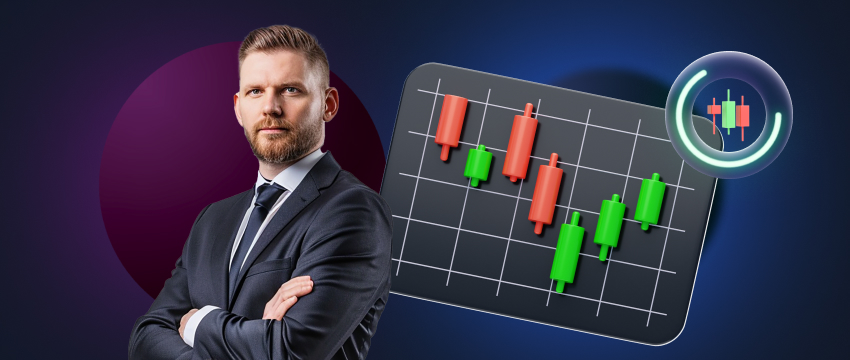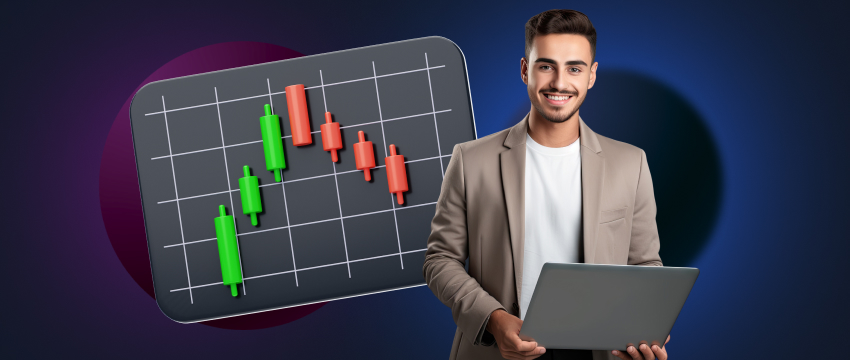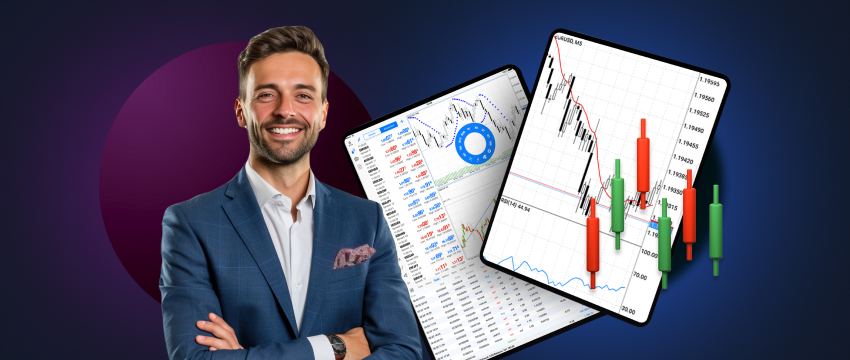Traders of all levels of expertise engage in forex trading. One can assess its suitability for beginners in the same way as for professionals. The answer ultimately likes in one’s temperament, willingness to learn, budget, en risk tolerance.
The forex market presents a number of challenges. Incredible volatility, varying liquidity based on the currency pairs being traded, high pressure to perform, and the need to process a large volume of information during market analysis challenge traders. But this is not to say that forex trading isn’t good for beginners. If you commit to putting in the effort to acquire the knowledge needed to execute smart trades, you can achieve unknown levels of success.
But before we jump into the different ways that one can learn more about currency trading, let’s explore why the forex market is appealing to somebody with virtually no industry experience:
- For one, the forex market has become easy to access, provided you have internet connectivity. Moreso, forex trading enables beginners to dive in with very little capital, catering to traders with limited budget.
- The high liquidity of the forex market allows traders to execute trades swiftly, enabling beginners to enter and exit positions quickly.
- The forex market is open 24/5, catering to those that may have limited time to engage in forex trading.
- There exists an abundance of online educational resources specifically designed for beginner traders, helping them to build a solid foundation in forex trading.
So, how does a beginner trader go about trading forex with little to no experience?

Step 1: Acquire an education
As with most new activities, learning more about the fundamentals of currency trading is vital. Engaging on the forex market blindly is a recipe for disaster, one that will inevitably lead to adverse financial outcomes.
To mitigate this risk, one must look to attaining some kind trading related education. This is not an activity reserved solely for beginners, absolutely not. Even experienced traders will engage in ongoing learning to ensure they keep their knowledge updated and their skills honed. So, what should you look to in order to gain the relevant insights in order to engage in informed trading:
Podcasts
- A super flexible way to learn about forex no matter where you are. They offer the opportunity to gain insights from a range of experts. Podcast topics typically include trading strategies, market trends, economic news, forex fundamentals, indicators and signals, etc.
Webinars
- Industry experts usually lead webinars, presenting them in a live session format that allows for real-time questions and answers. Interactive by nature make them an appealing choice for those looking to gain a robust understanding about forex.
- They often cover a variety of topics, catering to both beginners looking to understand the fundamentals, to the more experienced wanting insights into complex strategies.
Seminars
- Seminars are typically in-person events where global traders can gather for purposes of learning from and networking with their peers. The ability to interact and engage with other people elevates the educational experience.
Blogs and e-books
- Blogs are probably some of the most popular resources for learning about forex fundamentals. Usually accessible for free, they provide a massive amount of information on some of the most popular topics.
- This includes trading tips, trading strategies, market analysis, economic indicators, technical and fundamental analysis, etc. E-books are another popular written format that appeal to both beginners and advanced traders. They offer in-depth analysis of forex trading topics, curated by financial experts or professional traders.

Video
- Through YouTube alone, traders of all levels can access thousands of free videos on all things forex trading.
Trading courses
- For those seeking a more structured way to learn, forex related courses often provide a comprehensive, step-by-step guide to forex trading.
Demo trading account
- Probably one of the most popular tools to gain practical trading experience in a simulated trading environment. A demo account provides you with virtual funds to execute trades. This ensures you keep your own capital safe until you’ve gained the confidence and experience needed to move to a live trading environment.
- The demo account provides a way to learn more about technical analysis and allows you to try out different trading strategies until you’ve identified one that best suits your budget, risk tolerance, and skills.
Economische kalender
- While not an educational resource per se, Economic Calendars provide important data like central bank announcements, employment reports, GDP releases, interest rates, etc, enabling a trader to better plan their trades and make more informed trading decisions.
While practically all these resources are available across the internet, most forex brokers offer some if not all of these learning tools to their traders. For instance, the T4Trade Academy offers podcasts, videos-on-demand, e-books, webinars, Economic Calendar, and even Live-TV to boost your forex knowledge and become more skilled in trading.
Additionally, traders can also access the broker’s blog page which cover so many different topics and provide answers to many frequently asked questions related to forex trading.
Step 2: Develop a trading plan
A well-thought out trading plan is incredibly important for a beginner trader. It provides structure by defining the trader’s goals, level of risk they’re willing to incur, and the rules or strategy by which they will trade. This instils a sense of focus and discipline, thereby reducing the risk of impulsive decisions based on emotions.
It also mitigates the stress that is inherent in forex trading as when decisions are planned in advance, you’re less inclined to be overwhelmed by feelings of panic when having to deal with a volatile market. Which leads to step 3, managing emotions more effectively.
Step 3: Getting a handle on your trading psychology
The topic of trading psychology is all the rage right now, particularly because financial experts across the globe are realising to what degree feelings can adversely impact trading outcomes.
This is more evident for beginner traders who have not yet built the emotional resilience required to manage unexpected and aggressive price actions in a market that can see trillions of dollars change hands daily.
This makes learning how to manage feelings one of the most important components of successful forex trading. Some tips for achieving this include:
- Recognise and understand your emotions, including fear, greed and even overconfidence. Journal your trades and record how you felt in the moment, i.e. document your emotional state. Then look back and reflect on why you felt that way and the impact that your feelings had on your trades. It is only through awareness that we can work towards changing mindset.
- Build and stick to your trading plan. This will promote more focus and discipline, enabling you to execute trades driven by objective data rather than emotional instability.
- Focus on developing patience. Know that not everyday will be a successful trading day and that’s okay. Forex trading is all about highs and lows, ebbs and flows. Don’t rush to overtrade or exit trades prematurely, be patient and make decisions based on rationale.
- Stay informed. When we arm ourselves with knowledge, we make better decisions, anticipate market movements more effectively, and reduce costly mistakes. So, follow the news and monitor economic events and announcements. In that way you’ll be better equipped to react to unexpected market movements.

Become a T4Trade trader
Are you a beginner trader in the process of selecting a broker with whom to trade? T4Trade is a popular broker used by traders across the globe. The broker offers a highly engaged, 4/5 multilingual customer support team, cutting-edge trading platforms, and flexible trading conditions.
T4Trade traders can choose from 300+ trading instruments across 6 asset classes, and enjoy flexible leverage, competitive spreads, quick execution and convenient deposit and withdrawal options. Traders can also opt for a trading account that best suit their needs and individual preferences. The T4Trade Academy is also a phenomenal learning resource if you’re looking to widen your scope of forex related knowledge.
Disclaimer: This material is for general informational and educational purposes only and should not be considered investment advice or an investment recommendation. T4Trade is not responsible for any data provided by third parties referenced or hyperlinked in this communication.




